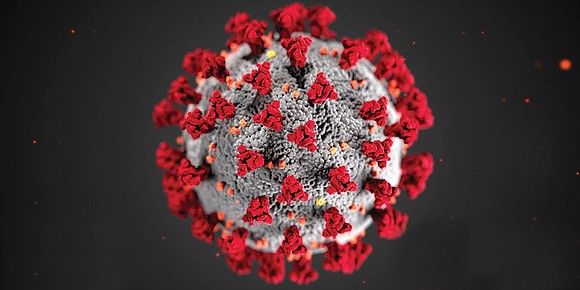Interested in a COVID-19 vaccine?
1/14/2021, 6 p.m.
Area health officials plan to expand vaccinations beginning Monday, Jan. 18, to front line essential workers, including police, firefighters and hazmat workers, pre-kindergarten through high school teachers and staff, child care workers and those who work in correctional facilities and homeless shelters.
Currently, only front line health care workers and residents and staff at long-term care facilities have priority to receive the vaccines.
Officials said three large-scale regional vaccination clinics will begin offering vaccines to the expanded group next week, but no details were available on the locations.
Those who live or work in Richmond or Henrico County and who think they are in the expanded group are asked to fill out a COVID-19 vaccine interest form at vax.rchd.com, or call (804) 205-3501.
Residents of Chesterfield, Hanover, Goochland, New Kent and Charles City counties are asked to complete an eligibility tool at https://vdh.jebbit.com/amkwk6m1?L=Owned+Web&JC=Vaccine or to call the state COVID-19 hotline at (877) 275-8343.
COVID-19
In the interest of addressing common concerns, the Richmond Free Press has collected answers to several questions about COVID-19 and the vaccine in Virginia. The questions were answered by officials with the Richmond and Henrico Health Districts and the Virginia Department of Health.
Question: If I have had COVID-19 and/or tested positive for COVID-19, is it safe to get the vaccine?
Answer: People who have had COVID-19, regardless of history (symptomatic or asymptomatic), should get the vaccine. Patients should be out of the isolation period and out of the active stage of infection when they get vaccinated. The one exception for vaccination might be for those people who had COVID-19 earlier but who have not recovered completely and are still having long-term effects. If you are still having long-term effects after COVID-19, you should discuss COVID- 19 vaccination with your health care provider.
Question: Should I get the vaccine if I am pregnant or am breastfeeding?
Answer: Anyone who is pregnant, breastfeeding or may become pregnant should consult with their physician and make an informed decision about taking the vaccine.
Question: Should I get the vaccine if I have allergies?
Answer: If you have ever had an immediate allergic reaction — even if it was not severe — to any ingredient in a COVID-19 vaccine, you shouldn’t get that specific vaccine. Your doctor may refer you to a specialist in allergies and immunology to provide more care or advice. If you have had an immediate allergic reaction — even if it wasn’t severe — to other vaccines or injectable therapies, you should ask your doctor if you should get a COVID-19 vaccine. Your doctor will help you decide if it is safe for you to get vaccinated. Vaccination providers have on hand items to respond to adverse reactions from a vaccine. Those who get vaccinated are observed after vaccination for reaction. It is always important to discuss this situation with your provider for your specific situation.
Question: Can I get the vaccine if I don’t have a primary care physician? Who/where will it be administered in that case?
Answer: Yes. Local health districts will be holding vaccination events. Eventually, neighborhood pharmacies, urgent care centers and federally qualified health centers are expected to be among the places offering vaccinations.
Question: How will I know when it’s my turn to get the vaccine?
Answer: Information on vaccine availability will be communicated through a variety of ways, including social media, conventional media channels and via community medical providers and your local health department.
Question: Are you required to wear a mask after getting the vaccine?
Answer: Yes. While experts learn more about the protection that the COVID-19 vaccine provides, it will be very important for everyone, even those who get vaccinated, to continue taking steps to protect themselves and others.
Question: How long will immunity take after receiving a second dose of the vaccine?
Answer: It can take up to two weeks after a dose for immunity to build up.
Question: After two vaccine doses, should you quarantine if you are directly exposed to COVID-19?
Answer: Yes. Even if you received one or both doses of the COVID-19 vaccine, you still should follow the quarantine guidance available after having close contact with someone with COVID-19.
Question: Will a supply of the vaccine be set aside for African- Americans and Latinos who have been disproportionately stricken with COVID-19?
Answer: No, but the Virginia Department of Health is confident that its vaccination plan will have significant impact in vaccinating those communities, given how African- Americans and Latinos comprise many of the groups focused on in the first phases of the state’s vaccination plan.
Question: What can the public expect with the spread of the U.K. variant strain of COVID-19?
Answer: VDH is closely monitoring the variant strains that have been identified in other countries and several U.S. states. The U.K. variant strain appears to spread more easily, but there is no evidence that it is causing more severe COVID-19. The spread of variant strains can be slowed also by wearing a mask, staying at least 6 feet from others you don’t live with and frequently washing your hands.
Question: Do the current vaccines work on the U.K. strain?
Answer: There is no evidence that the vaccine doesn’t work on the U.K. COVID-19 strain.
Question: Should those who have or had thyroid cancer, encephalitis an autoimmune disease or similar afflictions have any concerns about taking the vaccine?
Answer: These illnesses are not listed contraindications to receiving the vaccine. Please talk with your health care provider to discuss any underlying health conditions and potential risks when you are scheduled to be vaccinated to make that decision.







